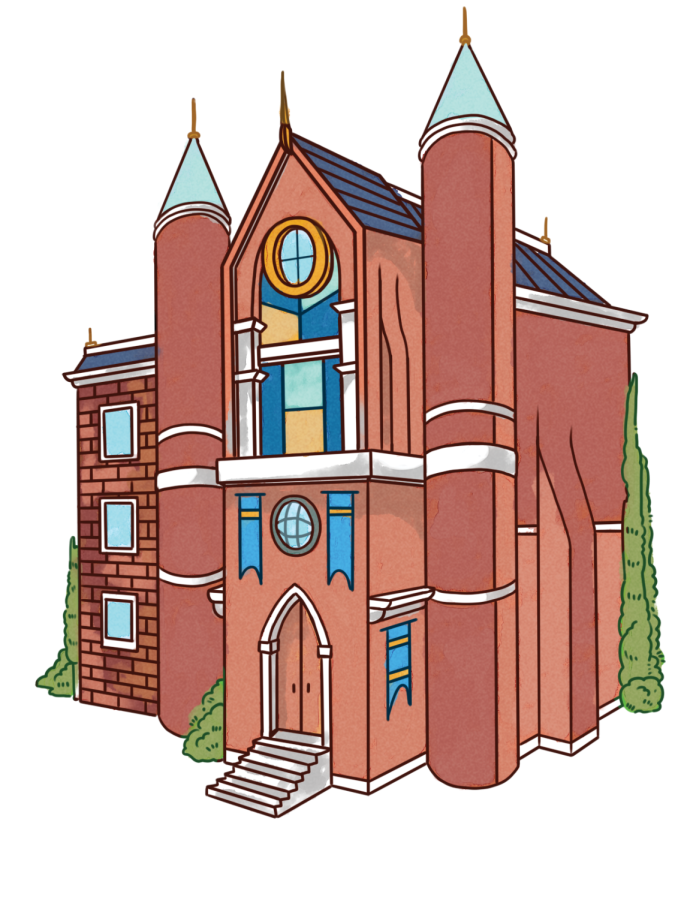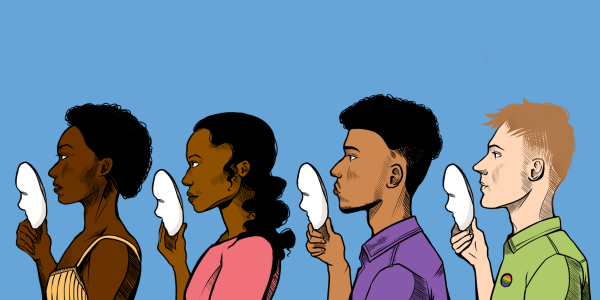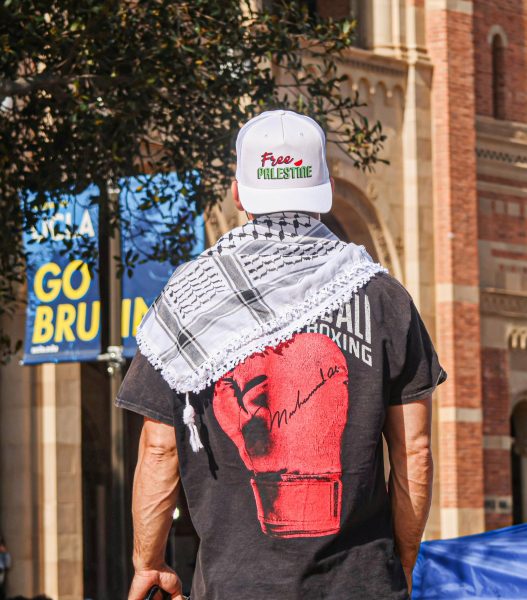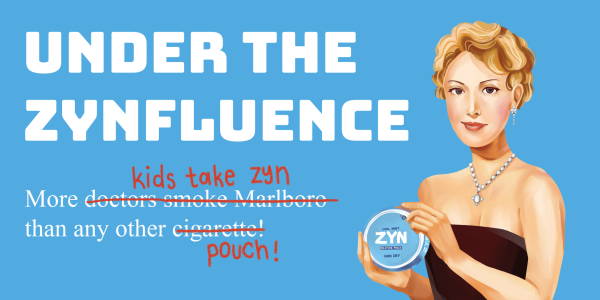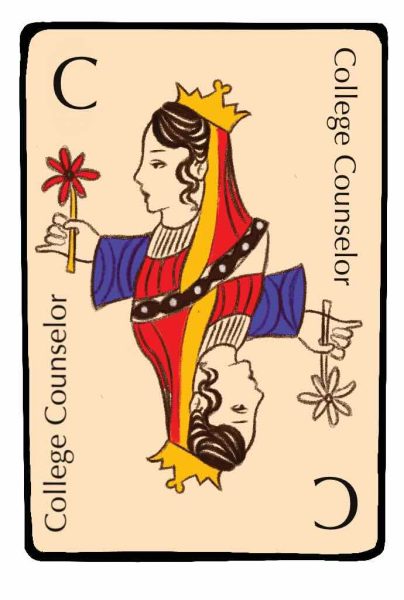Converting to College
November 16, 2022
As Henry Mass ’20 prepared for his first Chemistry exam at the University of California, Los Angeles, he anxiously pored over the pages of his textbook, reviewing for hours into the night. When he walked out of the test, however, Mass said he found the test easy and realized his time spent learning the content and fears of failure were excessive.
Mass, who transferred to Brown University this year, said his feelings of ease throughout the exam were a product of the work ethic and efficiency he developed in high school.
“It is not to say that you won’t take hard tests in college because you will, but Harvard-Westlake certainly prepared me to where I expected the hardest from college and it really just didn’t end up being that [way],” Mass said.
The school, a self-defined “college preparatory” institution, sends students to top colleges every year. The school recently ranked #2 on the Niche Best Private High School in America list.
Mass said that while college courses were easier after he learned to manage a large workload in high school, he advised high school students to pursue fulfillment rather than preparatory rigor.
“I was more attracted to the process of Harvard-Westlake and really challenging myself and growing,” Mass said. “The school has to be looked at as an experience in and of itself. My classes preparing me for college did a great job. However, if you’re just taking your classes to prepare yourself for college, you’re missing the bigger picture. You have to take your classes to gain something out of them intrinsically, which I think I did immeasurably.”
University of Chicago student Emmanuel Zilber ’19 said his first year of college was less academically challenging than high school.
“In college, you still have to take required courses in subjects you might not necessarily be interested in, but nonetheless have a lot of control over what it is you’re taking,” Zilber said. “And because of the larger array of classes, you can personalize it to classes you’re more interested in taking. Harvard-Westlake prepares you well for college, too, so I didn’t feel a substantial workload shift.”
Despite the increased freedom of his schedule and his academic preparedness, Zilber said he still feels pressure from the difficulty of his college courses.
“[My college classes] can be harder than my high school classes were due to a larger number of assignments in a shorter amount of time, at least with the quarter system, but you can adjust quickly because you’re not taking as many classes as you would at HW.”
History and Interdisciplinary Studies and Independent Research Teacher Dror Yaron said he believes the school teaches students the necessary skills to be successful in their future academic endeavors.
“It prepares you very well with learning how to balance priorities, deal with stress and endure challenges, all the while expanding your mind and your intellectual horizons,” Yaron said. “The college-obsessive cycle here, sort of the college industrial complex, that we play as a school, every school nurtures into that by its very nature. Though it is also self-induced by students. Often I see that sometimes, students are more concerned with what other people got on tests and what colleges they get into than appreciating themselves in their own right.”
Yaron said his three sons, who graduated from the school, were able to overcome the pressures of their first years of college because of the stress they learned to cope with in high school.
“I see with my kids that they were under some stress in college,” Yaron said. “Not only did they surmount it, but they thrived, they flourished and they’re doing so because of the environment here that at times was
ostensibly unfair, overwhelming and inflexible.”
Former News Editor Sandra Koretz ’22, a freshman at George Washington University, said she does not think the school could have better prepared her for college, both socially and academically.
“I have, thankfully, found it to be a pretty fair adjustment in terms of work,” Koretz said. “Yes, college comes with a ton of work, but so did HW, so I am relatively used to working and needing to manage my time efficiently. The only thing that is different is that you also have to factor in other things that come with adult life such as budgeting, cooking and more, which are some things I wish I had the opportunity to get better at in high school.”
Koretz said college gave her opportunities to form new friendships and experience a new environment.
“The first few months of college have been really fun because I have gotten to explore a new city and take classes I am passionate about, something I wasn’t always able to do at HW,” Koretz said. “Socially, college has so many more people than high school, which is great and allows for you to make new friends besides the ones that you go to school with. Being at HW, you are exposed to a super small environment and type of person, but being at a university, you meet all types of people from new places.”
Zilber said living away from home is a new experience most college freshmen have to learn to deal with on their own.
“I personally think high school was much more difficult than college, but that’s also including the stresses of having to get into college,” Zilber said. “Living on your own in another state is an adjustment on its own that Harvard-Westlake can’t really prepare you for. You get thrown in and have to make do. But it’s important to remember everyone else with you is in the same situation and experiencing similar stresses. So through your new community you can adjust quickly.”
Mass said although his first two years of college were in his hometown, he had to learn how to navigate a collegiate social environment.
“The connection between the intellectual environment and the social environment is much stronger in high school than it is in college,” Mass said. “In high school, all your activities center around the school. I played lacrosse [in high school]. All my friends were on the field with me, and I could talk to them about the lacrosse game or our English paper due the next day. That shared experience is just different in college because everyone comes from different places, different backgrounds and is in different classes or interacts with different people.”
With the submission of the Nov. 1 early decision deadlines, some seniors are considering their future plans.
Olivia Rahhal ’23 said the idea of attending school on an unfamiliar campus has been nerve-wracking.
“I’ve been stressed about it socially because I’ve heard from a lot of people that you get really prepared academically for college, so I think more of my stress has come socially,” Rahhal said. “I’m a little bit nervous to not have the Quad every day and not have set places where I meet my friends.”
Rahhal said she believes that as a student at the school, she has developed the independence necessary to live on her own in college.
“The best thing I’ve learned here is how to just function in the world and live as an adult, even at a young age,” Rahhal said. “Harvard-Westlake has prepared us well to be out in the real world.”
Associate Head of School Laura Ross said almost every alum she has spoken to said they felt academically prepared for college.
“I appreciate that our kids are prepared academically,” Ross said. “But what I really appreciate is [that] we help give kids the skills so that they can hit the ground running their first year of college and then take advantage of all their college has to offer to get them ready for grad school and jobs. Harvard-Westlake kids are like ‘we got that’
and can excel right away.” Ross said the school is currently considering ways to bring practical life skills into students’ education.
“There are all these other things in the world like how you navigate social scenes or media disinformation,” Ross said. “There are questions of what the school should do or what families should do.”































